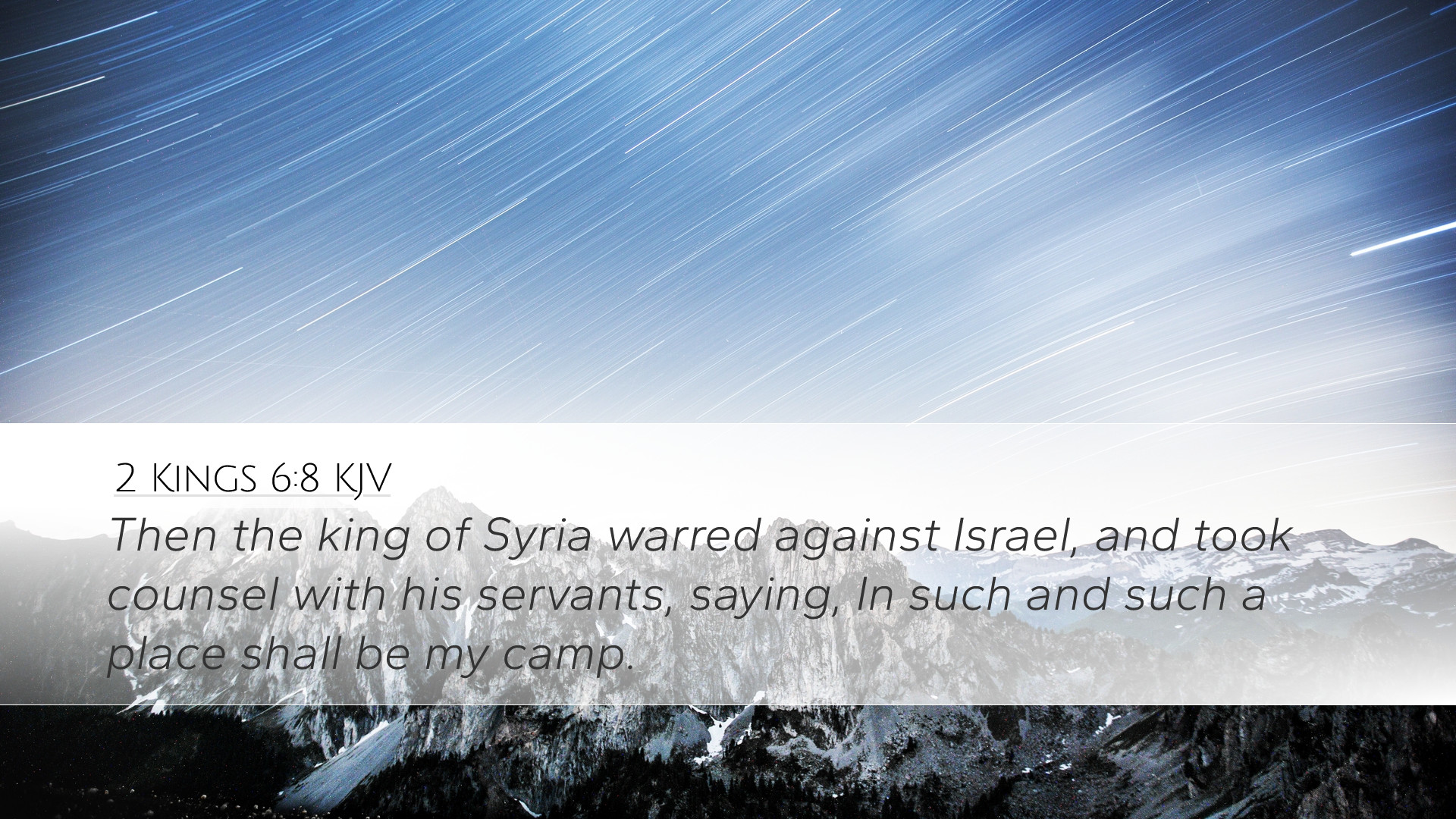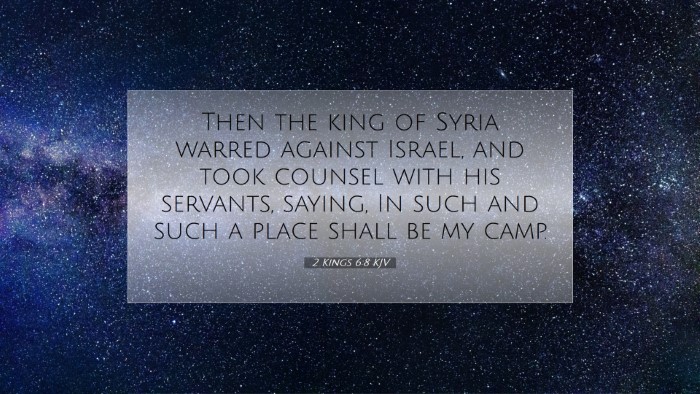Commentary on 2 Kings 6:8
The verse 2 Kings 6:8 states:
"Then the king of Syria warred against Israel, and took counsel with his servants, saying,
In such and such a place shall be my camp."
This passage sets the stage for a profound narrative of divine intervention and prophetic insight.
Below is a synthesis of insights from esteemed public domain commentaries, focusing on the implications, background, and theological significance of this verse.
Contextual Background
The geopolitical situation during the reign of Jehoram in Israel was fraught with tension, particularly with the kingdom of Syria (or Aram).
The king of Syria’s military campaigns against Israel were not merely struggles for territorial supremacy but also served as a backdrop for demonstrating the presence and power of the God of Israel.
Divine Omniscience and Prophetic Revelation
One of the remarkable themes in this passage, as highlighted collectively by Matthew Henry and Albert Barnes, is the revealing nature of God’s knowledge
juxtaposed with human plans. The king of Syria, upon strategizing his military actions, finds that his schemes are thwarted by the divine insight bestowed upon Elisha,
the prophet of Israel.
- Strategic Counsel: The Syrian king believed his plans were secretive and cunning. However, God revealed these plans to Elisha, illustrating that no human scheme can withstand the knowledge of the Almighty.
- Prophet's Role: Elisha's prophetic ministry serves as a direct contrast to the plotting of worldly rulers. He acts as a mediator between God and the people, serving as a conduit for divine revelation. This is crucial for understanding how God operates in history.
The Nature of God's Intervention
Adam Clarke emphasizes that God’s intervention often occurs at pivotal moments in human affairs.
The struggles faced by Israel are not simply matters of military might, but of spiritual significance.
- Faith in Adversity: The king’s aggressive posture symbolizes the trials faced by God’s people.
In moments of crisis, God's servants are called to stand firm in faith, trusting in divine guidance.
- God's Ultimate Sovereignty: This passage underscores that regardless of human opposition, God’s plans ultimately prevail.
The synergy between divine sovereignty and human responsibility is evident here.
Lessons for Contemporary Readers
Modern implications of 2 Kings 6:8 offer significant lessons for Christian leaders, scholars, and laypersons alike.
- Awareness of Spiritual Realities: The events described remind us that there are greater forces at play beyond human understanding.
We are encouraged to remain vigilant and prayerful in recognizing God’s hand in our lives and affairs.
- God’s Protective Nature: Just as Elisha was informed of the enemy’s plans, believers today are assured of God's protective promise over them.
This serves as a comfort amidst trials and tribulations.
- The Role of the Church: As the body of Christ, there is a call to intercede for our communities and nations,
trusting that God reveals the necessary counsel as we seek His guidance.
Conclusion
2 Kings 6:8 is not merely a historical account, but a source of rich theological reflection regarding God’s omniscience,
His protection over His people, and the nature of prophetic ministry.
Pastors and theologians should reflect on these truths, discerning how they resonate with our contemporary challenges and experiences.
This passage invites a deeper understanding of how God interacts with the affairs of humanity, reminding us that His purposes are eternal and unthwarted.


